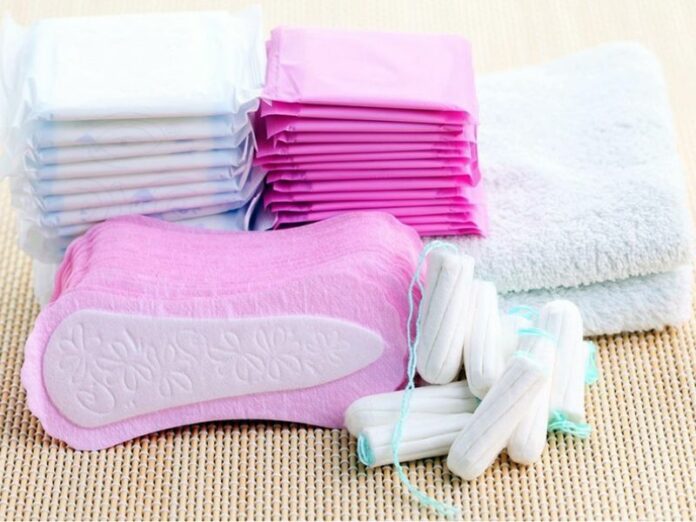Twenty-three (23) Civil Society Organisations (CSOs) have appealed to the Government of Ghana (GoG) to mimic the examples African countries such as Kenya, Rwanda and South Africa have set and remove taxes on sanitary products.
According to the group, the government, as a matter of urgency must scrap the import tax on sanitary pads and reclassify the product as ‘essential social goods’ which is Zero (0) rated.
In a joint news released and signed by Levlyn Konadu Levlyn, National Coordinator, Ghana CSOs Platform on SDGs, last week, the group indicated that the government has a responsibility to help make sanitary products affordable to all women and girls.
According to them, sanitary products are currently enlisted in Chapter 96 of the Harmonised System, and that attracts a 32.5 percent tax on imported sanitary pads, which is made up of 20 % import duty and 12.5 % in Value Added Tax.
The platform said the release was in commemoration of the 2023 Menstrual Hygiene Day which was held on Sunday 28th May, 2023 under the theme: “Making menstruation a normal fact of life by 2030.”
It added that the release was necessitated by the challenges women and adolescent girls face to care for their bodies while menstruating. Meanwhile poor menstrual health and hygiene are affront to their rights, including the right to work and go to school.
“Insufficient resources to manage menstruation, such as sanitary pads and clean water, worsen the already existing social and economic inequalities. It further undermines human dignity and attacks the confidence of girls and women,” the statement said.
The Platform appeals to Ghanaian schools, workplaces and public institutions to ensure that people can manage menstruation with comfort and dignity while being productive, saying “our aim is to contribute to the building of a fairer, healthier, gender-responsive Ghana that acknowledges and works towards achieving the vision for sanitation and hygiene under Goal 6 of the Sustainable Development Goals
“By 2030, achieve access to adequate and equitable sanitation and hygiene for all, paying special attention to the needs of women and girls and those in vulnerable situations.”
Most importantly, the platform calls on the government to increase political priority and ignite action for menstrual health and hygiene so that women and girls feel confident, comfortable and free of any shame.
Policies that eliminate period poverty, especially for low-income women and girls who struggle to afford menstrual products and have limited access to water and sanitation services must be expedited.
The Ghanaian media was urged to encourage open dialogue on menstruation to break the stigma and teach young girls on how to stay healthy and hygienic during their monthly cycles.
The Platform is, therefore, calling for a comprehensive effort aimed at making sanitary products affordable and intensifying public education on menstruation.
The CSOs are Alliance for Reproductive Health Rights, African Institute for Population and Development, Center for Community Studies Action and Development, Centre for Democratic Development, Clikgold Association, Curious Minds Ghana, Divine Group International, Ghana SRHR Alliance for Young People, Human Rights Reporters Ghana, Marie Stopes Ghana and NORSAAC.
The others are Oxfam Ghana, PARDA, Planned Parenthood Association of Ghana, RAINS, RENEL Ghana Foundation, SEND Ghana, The CSOs Platform on SDGs, WILDAF Ghana, Women and Media Change, World Vision Ghana, Youth Advocates Ghana and Youth Harvest Foundation Ghana.









